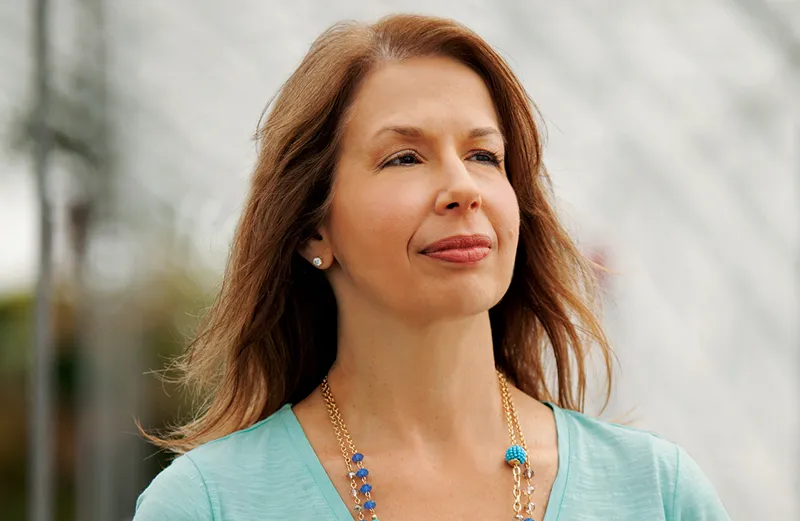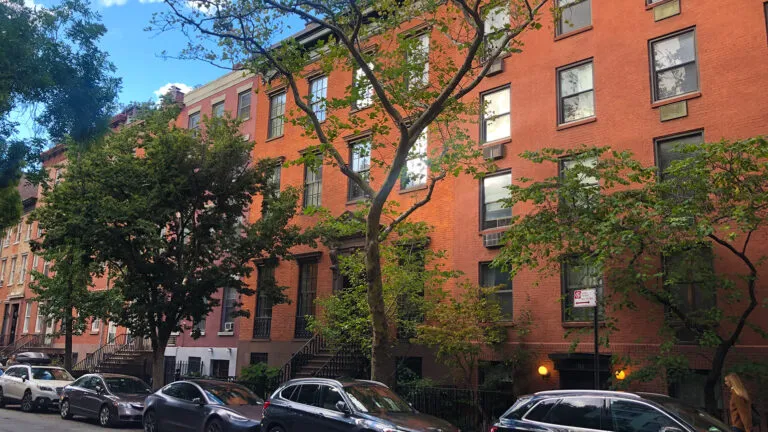Strained. That was really the kindest way to describe my relationship with my father. My parents got divorced when I was six. After that, contact with Dad was sporadic. Not because of Mom, who understood that I needed him in my life. It was because of Dad.
He would miss scheduled visitations, go weeks sometimes without returning my calls. Mom tried to make excuses for him, but she couldn’t answer the questions that tore at my heart. Wasn’t I important to my own father? Didn’t he love me?
I saw how my friends were with their dads, and I yearned for that kind of closeness. I wanted a father I could rely on. Someone who wouldn’t forget my birthday or miss my dance recital and then claim he’d lost his ticket.
He did make it to my high school graduation, though. He wore his best summer suit and nice cologne, and it felt so good to have him throw his arm around me. I prayed that that would be a turning point for us. It wasn’t.
If anything, we drifted even further apart. Practically nonexistent would be the most accurate way to describe our relationship for most of the last 15 years. I had stayed close to my grandma, his mom, and I would see him at her house for a few hours each Christmas.
He’d sit on the couch sipping Scotch and we’d carry on an awkward conversation, like a couple of strangers instead of father and daughter. I tried to close my heart and pretend it didn’t matter. I was an adult; I had my own life. But pretending didn’t work. It still hurt.
Then one Christmas Dad made an unexpected—and uncharacteristic—offer. “Keep the books for me at the shopping center one day a week, and I’ll pay your mortgage,” he said, looking not at me but at the ice cubes he was swirling around in his glass. “At least you’ll keep a roof over your head.”
He’d bought a small strip mall in Tulsa, sold his house and taken up residence in one of the vacant storefronts. Money had been tight for me since I started my own business.
I could use the income, but the last thing I wanted was to drive an hour and a half each way from my home to his place and risk being hurt again. Still, what if this was the opening I’d hoped for all these years? I told him I’d do it.
“You can start Monday,” Dad said. “Come real early.” He wanted me there the moment he awakened.
That first Monday I discovered why. It was the only time he was sober. He steadily consumed alcohol and painkillers all morning, and by noon his eyes were glazed over.
How could I not have known?
I drove home that afternoon not sure whether I was more angry at him or at myself. We had never spent much time together, but now everything made sense—the missed visits, the forgotten phone calls. Lord, why are you having me work with Dad? I can’t help him.
But I couldn’t stop thinking about him either. Dad was on my mind when I fell asleep that night and when I got up the next day. Perhaps he couldn’t show me love because of his addiction, but what was my excuse? At least I could let him know I cared about him and was grateful that he’d hired me.
I scrolled through the card-making program I had on my computer. I chose a simple drawing of a star with the message “You’re a star.” I printed out the card, folded it and wrote a few lines thanking him for the opportunity to work with him.
Digging through my desk for an envelope, I came across a box of silver stars—like the ones teachers use. Dad might get a kick out of them, I thought. I shook some inside the envelope and put the card in the mailbox.
He didn’t mention it the following Monday. “Did you get my card?” I finally asked.
“Mmm-hmm,” he muttered, without even glancing my way. His tone sounded disapproving.
He’ll never change. I pushed my hurt down and went back to his files.
Mondays with Dad weren’t ever easy. He was moody and argumentative and sometimes downright irrational. One day as I was leaving, he stopped me at the door.
“I’ve always done right by you, girl,” he said, waving the check for my mortgage. The check I’d earned by keeping his books, I wanted to remind him.
Irritation must have shown on my face because Dad’s neck reddened and his eyes narrowed. “I paid child support and put you through college,” he said. “I even bought you a camera for that photography class you took.”
I should have kept my voice calm, but a lifetime of hurt rose up and boiled over. “That was twenty years ago!” I snapped. “Why are you bringing up the past?”
Dad’s shoulders slumped. “Because it was the best I could do.”
He had always taken great pride in keeping his financial obligations to me. Was it easier for him to give material things than the love I craved? Or maybe giving money was the way he showed love. My heart softened and I stepped toward Dad to hug him. But he turned away.
“See you next Monday,” he said, hoisting his bottle of Scotch. “Come early.”
I drove home enveloped by sadness—not only for myself but also for my dad. Instead of seeing him through the eyes of a wounded child, I had a new, adult perspective.
My 62-year-old father was an alcoholic and an addict, and likely had been most of my life. That colored everything he did and said. Maybe it wasn’t just the best he could do—maybe it was all he could do.
From then on I prayed for Dad every morning. Help him, Lord, I asked. Let him know that I love him. That I forgive him. I tried talking to him about his addiction, but it sent him flying into a rage.
So I kept it simple. Every week I mailed him a lighthearted computer-generated card or a Polaroid of my dog with a silly saying written on it. Sometimes I brought along treats I’d baked for him. I had my grandma’s recipe box and she’d marked his favorites, like black walnut cookies and coconut cake.
Dad never mentioned any of it, but the more I prayed and did loving things for him, the less I felt the hurt of the past.
For more than a year i spent Monday mornings in Tulsa with Dad. Come June I was looking forward to Father’s Day. I sent him a special card and called several times that Sunday to wish him a happy Father’s Day.
I couldn’t get him on his landline or his cell phone. I figured he’d been drinking and couldn’t pick up.
My phone rang that night. Was it Dad returning my call? No, it was the Tulsa fire marshal. He told me the roof of the shopping center had caught fire in the early hours that morning. The fire had spread fast and Dad was dead of smoke inhalation.
Very little was salvageable, the fire marshal said, but someone needed to walk through the site the next day and inventory Dad’s belongings for the insurance company. I was his nearest relative.
Monday afternoon I met the fire marshal outside Dad’s place. The smell was overpowering, charred lumber mixed with bitter tar from the roof. Ashes floated on the breeze. “We need to wait for the insurance adjuster,” the fire marshal said.
“I didn’t get to wish him a happy Father’s Day,” I murmured. It seemed immeasurably sad that just when I thought I’d rediscovered my father, I lost him.
The insurance agent arrived. “I’m sorry for your loss,” he said. He handed me a paper mask. I pulled it over my nose and mouth and followed him into the burned-out building.
Cautiously we made our way through the charred rubble. Dad’s desk had been incinerated. All that was left of the couch was the steel frame and wire coils. The dining table was burned down to its legs. Shards of broken dishes and glass littered the counters.
We got to the back room, Dad’s bedroom. His dresser, the furthest away from where the fire started, stood unmarred. “Check the drawers and I’ll take a peek in the closet,” the insurance adjuster said.
I pulled open the first drawer and found a stack of white undershirts. I gathered up a handful and buried my face in the soft fabric. It didn’t seem possible, but the scent of Dad’s cologne surrounded me.
The bottom drawer stuck. I used both hands and heaved hard. The drawer flew open. A smattering of silver stars spilled out. The ones I’d put in that first card I’d made for him on my computer. The drawer was stuffed with cards and photos.
One by one I lifted them out. Dad had never said a word, but he’d saved every single thing I’d sent him the past year and a half.
I dug deeper in the drawer. There was a bunch of old papers. I couldn’t believe it. Letters I’d written to him from college. He’d saved them. My school pictures too. And Father’s Day cards dating all the way back to when I was six.
I sank to my knees, tears rolling down my cheeks. Tears of gratitude for these past months we’d had together.
I hadn’t been spending Mondays with Dad to get me through a rough patch or to help him or change him. I’d been given this time to change me, to heal my hurt, to forgive the past and open my heart to my father’s love.
I scooped up the silver stars and let them slide through my fingers. I watched them drift through the air and come to rest in my lap.
“Happy Father’s Day, Daddy,” I whispered.
Download your FREE ebook, True Inspirational Stories: 9 Real Life Stories of Hope & Faith





